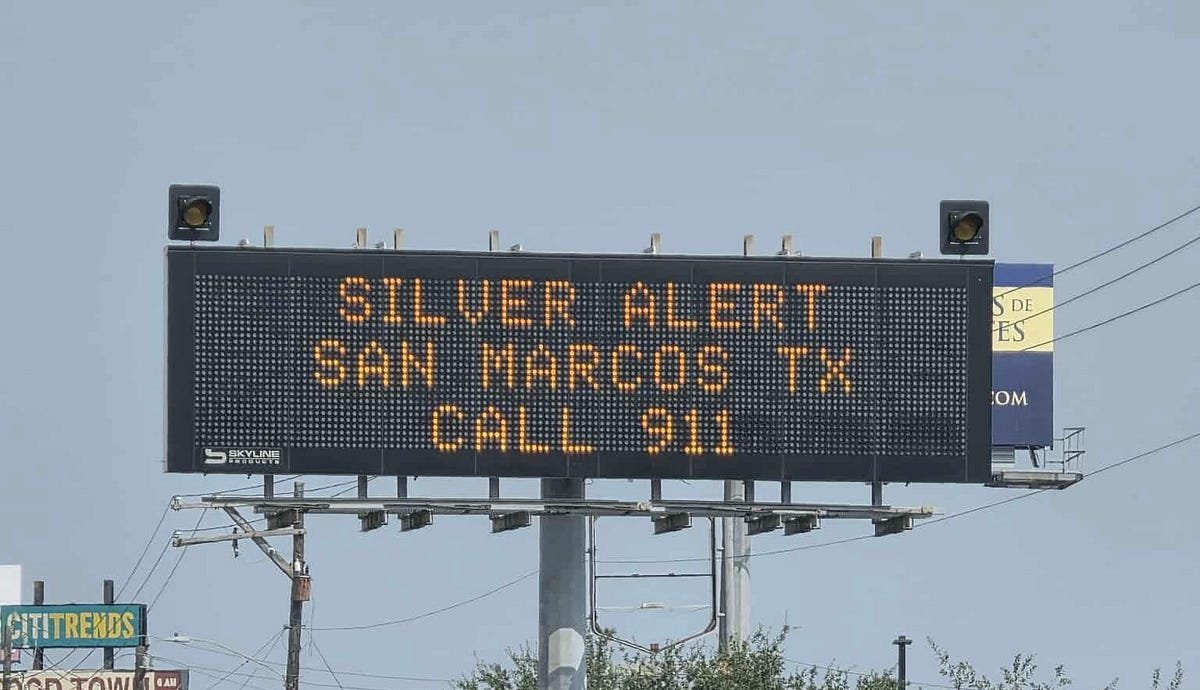When Alzheimer’s Turns a Routine Day Into a 24-Hour Search | by Misti Rios | Sep, 2025

I’ve been familiar with Alzheimer’s for most of my life. My mom was an LVN and worked many years in a nursing home, often on the Alzheimer’s unit. As a kid, I would go with her to work and spend time with the patients learning how to talk with them, laugh with them, and just be present. Later, my grandmother (my dad’s mother) also developed Alzheimer’s, and I was with her during her journey too.
So when my dad began showing signs years ago telling the same stories, forgetting conversations I recognized it right away. At first, we moved him from living alone into an independent living facility. I checked in on him several times a week to make sure he was taking his medication. But when I noticed his pillbox was often off multiple days gone, or pills taken on the wrong day I knew we needed something more reliable.
That’s when I discovered the Hero Medication Dispenser http://bit.ly/4gxemE7. It’s been a lifesaver. It dispenses meds at the right time, alerts him, and notifies me if a dose is missed.
Later, we decided to move him onto our property. We have two acres and hookups for a travel trailer, so he’s lived there the past few years. This arrangement gives him independence while letting us keep an eye on him. For extra peace of mind, I track him with Life360 http://bit.ly/4gu53V6. Sometimes he figures out how to disable it, but most of the time it works well.
The Weekend Everything Went Sideways
This past weekend, we had one of the scariest experiences yet. My dad’s phone battery died, and we couldn’t get it to charge. I ordered a replacement, but while waiting on the data transfer, he was left without a phone. We asked him not to go anywhere, and he agreed. In hindsight, I should have taken his keys.
At 9:38 AM Saturday morning, he left in his car anyway. I thought maybe he was going to H-E-B for his prescription or even mistaking the day for Sunday and heading to church. But by the afternoon, I knew something was wrong. He hadn’t been to either place.
At 3 PM, I got a call from a San Marcos officer an hour from our home. Dad had stopped at an urgent care because he didn’t know where he was. He wasn’t hurt, just confused. The officer programmed our home address into his car’s GPS, and we thought that would solve it. But later, after stopping for gas, something must have reset. He never made it home.
As the hours stretched into the evening, my worry grew. By midnight, after filing reports with the sheriff, a Silver Alert was issued. I later learned the delay was because police have to rule out foul play first they must confirm the person really went missing on their own. I respect that, but those hours of waiting were agonizing.
Through the night, fears ran wild: Was he stranded on the roadside? Did he run out of gas? Did someone take advantage of him? With a full tank, he could have gone anywhere. I barely slept, constantly checking my phone for news.
At 5 AM, my husband drove out to the last known gas station to check the area. By morning, my sister, daughter, and I were preparing to search too. Just as I was about to leave, I got the call: police in Dripping Springs, 90 minutes away, had located his car using their license plate reader system.
My sister lived nearby and was with him within 30 minutes. When we finally got there, Dad was extremely confused. He thought he had slept in his own bed the night before. He remembered going to church, but nothing else. His car had only 1/8 of a tank left. He hadn’t eaten since the morning before. My sister got him some breakfast, and we brought him home to rest.
What I Learned (The Hard Way)
Looking back, there are things I would do differently:
- Take the keys if he doesn’t have a phone.
- Don’t rely on the car’s GPS — go get him ourselves.
- Put safeguards in place for gas and driving at night.
We’ve now installed a cellular-based GPS tracker in his car https://amzn.to/4ncyU7g. Unlike Tile or AirTag, this one uses cell towers, making it much more reliable especially in rural areas. The subscription is under $9/month, and the peace of mind is priceless.
Adult Protective Services also called after the Silver Alert, which I understand. Their job is to make sure vulnerable adults aren’t neglected, and I respect that process completely.
In fact, APS later made an unannounced visit (we knew they probably would). They questioned my dad, questioned me, and after seeing that he was safe and cared for, they gave us the all clear and dismissed the case.
Final Thoughts
My dad still doesn’t realize he was missing for 24 hours. That’s the nature of Alzheimer’s the person may never grasp what really happened. But for caregivers, those hours were some of the longest of my life.
If you’re walking this road too, know you’re not alone. There are tools and resources that can help, from medication dispensers, to GPS trackers, to simple daily check-ins. And sometimes, just hearing another caregiver’s story reminds you that what you’re feeling is normal.
👉 I’ve also put together a page of resources and products that can make caregiving easier. You can find it here: Alzheimer’s Caregiver Hub
Lessons Learned (Quick Takeaways)
- Medication management is crucial → pill boxes can fail; automated dispensers ensure meds are taken correctly and on time.
- Living arrangements matter → keeping a loved one nearby balances independence with safety.
- Technology helps but isn’t foolproof → tracking apps can be disabled accidentally.
- Take the keys if there’s no phone — even “just for a day” can lead to big risks.
- Food and sleep deprivation worsen confusion → lost loved ones may not realize they’re in distress.
- Don’t rely on in-car GPS alone — caregivers should retrieve their loved one directly.
- Dedicated GPS trackers are worth it — cellular-based trackers are more reliable than Tile/AirTag.
- Silver Alert delays happen → police must rule out foul play first.
- APS involvement is standard → after a Silver Alert, they may call or make an unannounced visit. If everything checks out, the case is dismissed.
- Law enforcement tech is powerful → license plate readers help find missing vehicles quickly.
- Family mobilization is natural but exhausting → waiting for official leads can sometimes be more effective.
Bonus Resource: Protecting Your Loved One’s Phone from Scammers
One of the hidden dangers for people living with Alzheimer’s is being targeted by scammers through their phones. Because my dad’s iPhone is such a lifeline — and scammers know how to exploit that — I created a step-by-step PDF guide to help lock down his phone settings for safety.
📥 Click here to download: “How to Lock Down an iPhone 13 Against Scammers”
(Note: steps may differ on other phones, but the same principles apply.)
Resources for Caregivers
If you’re supporting a loved one with Alzheimer’s, here are some tools and trusted organizations that can help:
- Medication Management: Hero Medication Dispenser https://bit.ly/4gxemE7
- Location Tracking: Life360 App https://bit.ly/4gu53V6
- Vehicle Safety: Cellular GPS Tracker https://amzn.to/3VjMXvx
- Everyday Care Products & Safety Tools:
- 👉 Explore my full list here: Alzheimer’s Caregiver Hub
- National Alzheimer’s Support:
- Alzheimer’s Association — Offers a 24/7 helpline, support groups, educational programs, and local chapters nationwide. Learn more at alz.org or call 800–272–3900.
- Alzheimer’s Foundation of America (AFA) — Provides a national toll-free helpline, care counseling, virtual programs, and support for caregivers. Visit alzfdn.org or call 866–232–8484.


